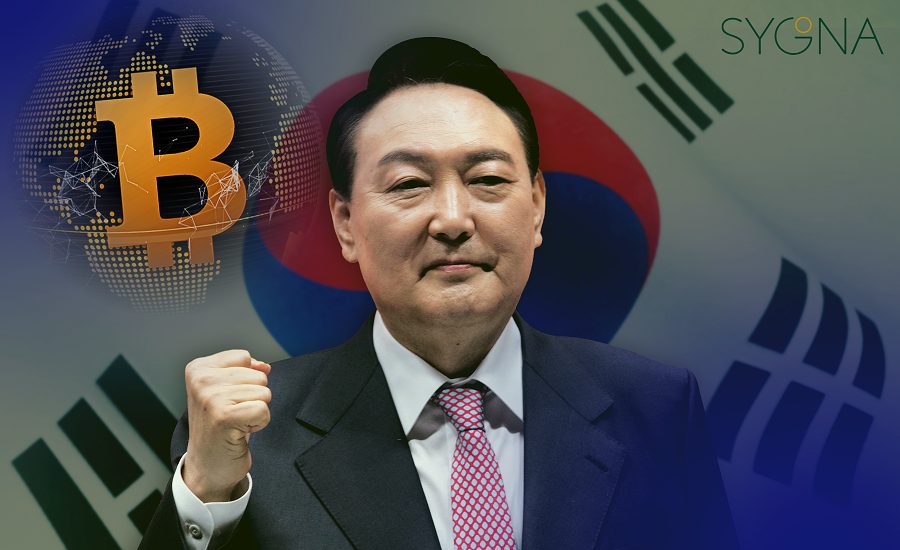In same month as crypto-conscious election, nation implements FATF’s Crypto Travel Rule
Introduction
South Korea’s cryptocurrency sector is set for major regulatory changes following two major developments in the crypto-crazy East Asian country and years of hardship for exchanges. On March 9, South Korea elected a decidedly pro-crypto candidate in former prosecutor Yoon Suk-Yeol of the right-wing People Power Party. Just two weeks later on March 25, the nation implemented the Financial Action Task Force’s (FATF) guidelines on the Crypto Travel Rule, following a year-long grace period for virtual asset service providers (VASPs) to catch up with the regulations. It’s been an eventful month for the crypto community in the world’s most wired country, and it’s a good time to unpack some of what’s been going on.
In this article, we’ll take a look at the state of crypto in South Korea, what Yoon promised during his campaign, and how the Crypto Travel Rule is being implemented in the country.

Crypto Background: South Korea
South Koreans struggle with stagnating wages and rising levels of household debt, with homeownership largely out of reach for young people in major cities. This is steering many into stock and crypto investments to get a leg up, despite a crypto crackdown by outgoing President Moon Jae-In of the Democratic Party, whose government oversaw regulations that shut down over 70 VASPs and left only a few standing. With over 5 million crypto accounts belonging to individuals in South Korea, venture capital firm Hashed estimates that around 10% of those who voted in the recent election hold some crypto, with young men said to have tipped Yoon’s 1% margin of victory.
South Korea Implements FATF’s Crypto Travel Rule
Since March 25, South Korea’s year-long grace period for implementing the Crypto Travel Rule has been over, and now the country’s exchanges and crypto users are struggling to adjust to the new reality. With a threshold set at $821 – lower than FATF’s recommendation of $1,000 – larger transfers will be flagged and limited to user-verified wallets.
South Korea’s centralized exchange market has been drastically cut down to size in recent years, with only four significant players remaining. These include Upbit, Korbit, Bithumb, and Coinone. Upbit dominates the scene, with 78.3% of the market share.
For allowing transfers under the new system, Upbit is using its Verify VASP program, while the other three exchanges collaborated on a new platform called the CODE system. The two systems allow for transfers to different VASPs and countries, while domestic transfers have been temporarily halted until April 8.
Industry insiders in Korea, such as Hashed CEO Simon Kim, are saying that the rollout of the Crypto Travel Rule has been pushed out overbearingly by regulators with “low understanding,” but he expressed confidence the necessary revisions would occur after the industry and users had to time to voice feedback.
Crypto under Outgoing President Moon Jae-in
Under the outgoing government, crypto has been pushed onto the ropes. A range of hard-hitting policies has chased a sizable portion of the industry out of the country, with many entities having relocated to Singapore‘s greener pastures and more robust regulation. Here is a brief summary of South Korea’s crypto crackdown in recent years:
Capital Gains
In a plan that was meant to kick off this year but was delayed until 2023 due to investor backlash, the National Assembly has mandated a 20% capital gains tax on yearly crypto profits exceeding KRW 2.5 million ($2,024).
De Facto ICO Ban
Due to a notice posted on the website of a financial regulator in 2017, initial coin offerings (ICOs) have been in effect banned in Korea for the last five years. This is absent from any legislation, and it has fueled the flight of many crypto entities to Singapore.
Cross-Trading Ban
In June 2021, the nation’s Financial Services Commission forbade cross-trading among crypto businesses.
Play-to-Earn Ban
Despite widespread expressions of interest from the domestic gaming industry, play-to-earn gaming is currently banned in South Korea.
Legislative Inaction
At the moment, there are 14 pieces of crypto-related legislation stuck in the National Assembly.
National Metaverse Project
One bright spot for crypto under the current administration was the announcement in February of $186.7 million in funds for the creation of a government-sponsored national metaverse project called “Expanded Virtual World.”
Crypto Promises of President-Elect Yoon Suk-Yeol
President-elect Yoon offered a smorgasbord of crypto promises during the campaign, having competed against opponents who were also seeking to court crypto-savvy young voters. He went so far as to issue non-fungible tokens (NFTs) for his campaign, as did one of his rivals who even accepted crypto donations. How many proposals he will be able to get through the National Assembly, which is still controlled by his political opponents, remains to be seen.
Capital Gains
The incoming President has pledged to raise the threshold for capital gains tax for crypto to the same level as stocks, traditionally the favored asset class for Korean investors. That would mean that yearly crypto investment earnings under KRW 52.4 million ($42,450) would go untaxed.
Negative Regulation and Crypto Unicorns
Yoon has pledged to eliminate “unreasonable” regulations that are “far from reality” and stated he would pursue a framework of negative regulation, adding that legal infrastructure must be in place before taxes are levied. He has also said he would seek to lure and nurture crypto “unicorns,” meaning startups with a valuation of over $1 billion.
Illegal Assets Confiscation
The president-elect has promised to aggressively go after illicit funds obtained from hacks and to hand them over to the victims.
Basic Digital Assets Law
During the campaign, Yoon floated the idea of a Basic Digital Assets Law, which would mandate insurance policies that would cover funds lost due to hacks and system errors on exchanges.
Digital Industry Promotion Agency
Yoon said in the run-up to the election that he would create an agency for the promotion of digital industries, specifically with regard to crypto and non-fungible tokens (NFTs), though this pledge did not make the ultimate list of his campaign promises.
Reversal of ICO Ban
Under a Yoon administration, the current ban on ICOs will likely be reversed, as he has pledged to do so and the action would not require legislation to remove the current notice barring them.
Reversal of P2E Ban
Mentions of reversing the P2E ban made during the Yoon campaign were not to be found in the final versions of the campaign literature. Pressure may still mount to do away with the ban, as South Korean companies are lining up to get into the sector, and NFTs, often a key component of P2E, have unusually high adoption rates in the country.
The Verdict
It’s a heady time for crypto in Korea, with perhaps a bright and even pioneering future ahead. The country has long been a leader in many technological fields, and it had seemed uncharacteristic that it would push an emerging industry like crypto outside of its borders. With VASPs and other entities seeking to adjust to new regulations such as the Crypto Travel Rule, we at Sygna, with our offices on the ground in Korea, can assist with a range of institutional compliance solutions.



